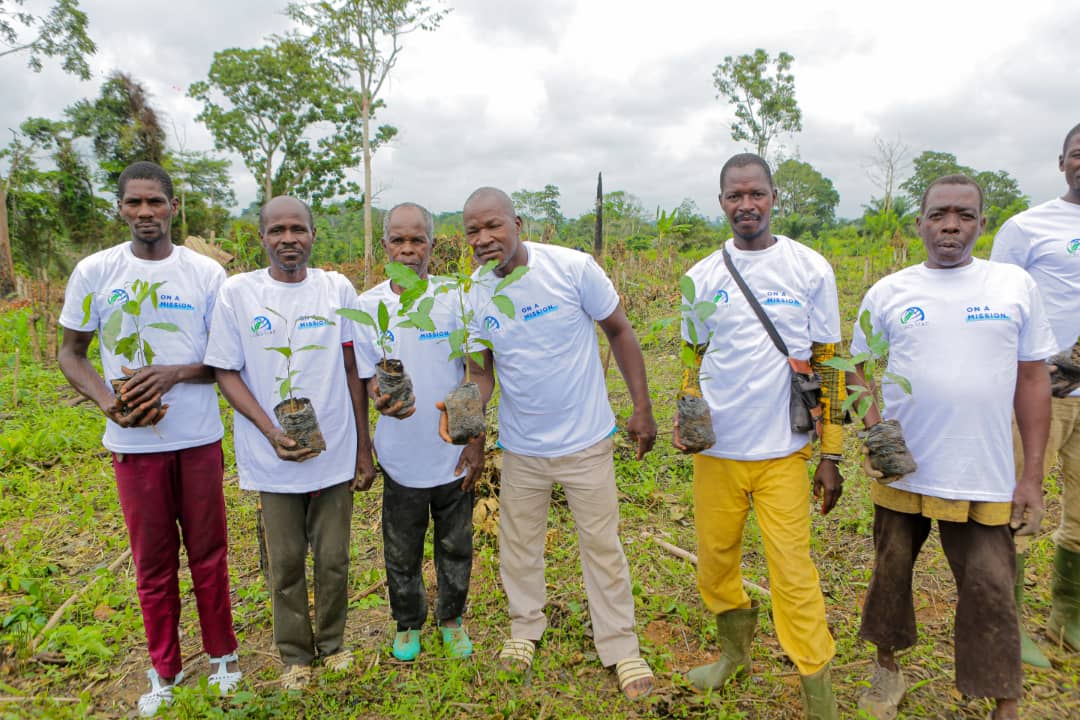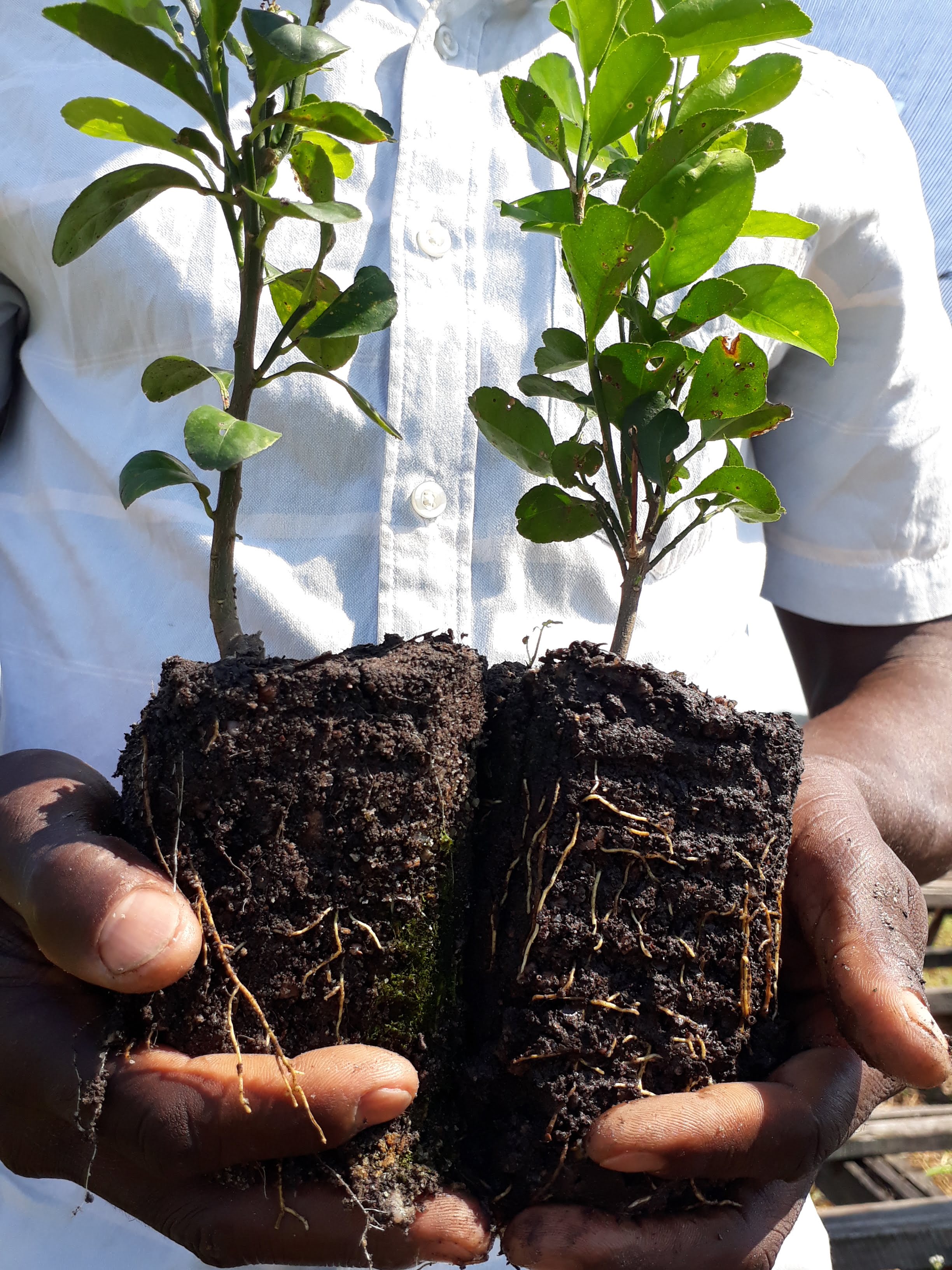Why Reforestation Matters: Climate, Communities, and a Greener Future
Reforestation is a powerful solution to climate change, biodiversity loss, and ecosystem degradation. It restores forests that absorb carbon, support wildlife, and uplift communities through sustainable livelihoods. At ON A MISSION, we focus on high-impact, community-led reforestation that delivers real environmental and social benefits

Through climate change, biodiversity loss, and widespread environmental degradation, one solution stands tall, reforestation. It's not just about planting trees. It’s about rebuilding ecosystems, capturing carbon, supporting wildlife, and creating meaningful benefits for communities around the world.
At ON A MISSION, we’re focused on reforestation projects that go beyond carbon. We believe restoring forests is one of the most powerful ways we can heal the planet while lifting people up.
Forests Are Climate Champions
Forests are nature’s carbon sinks. Every year, they absorb around 2.6 billion tonnes of CO₂, which is about one-third of the emissions from burning fossil fuels. Tropical forests alone could deliver nearly 30 percent of the solution needed to limit global warming to below 2°C. Yet, they receive just 3 percent of climate mitigation funding globally.
We’re here to help change that.
Forests store over 300 gigatons of CO₂ equivalent and offer one of the most scalable, natural solutions to the climate crisis. That’s why reforestation is one of the smartest investments we can make.
Reforestation Protects Wildlife and Restores Balance
Over 80 percent of terrestrial animals, plants, and fungi species depend on forests. But as forests are cleared or fragmented, entire ecosystems are pushed to the brink.
Reforestation brings back lost habitat and reconnects fragmented landscapes. When done with native species in the right ecosystems, it can help recover up to 60 percent of the species lost due to deforestation. That’s a game changer for biodiversity.
It’s Not Just About Trees, It’s About People
Reforestation has major social and economic benefits too. At ON A MISSION, we work directly with local communities, making sure our projects generate lasting value for the people who live near the forests. For many, this work lifts families out of poverty and builds long-term resilience.
How We Choose Projects That Make a Real Difference
Not all tree-planting projects are created equal. That’s why we take a strategic approach.
We carefully evaluate each project to ensure it’s locally led, ecologically sound, and community-driven. We monitor projects using satellite technology, scale up the most successful ones, and ensure each one delivers measurable results over time.
We Help Businesses Take Action Too
For companies looking to balance their emissions or boost their sustainability efforts, reforestation offers a clear, credible path forward.
We help businesses calculate their carbon footprints, identify ways to reduce them, and support reforestation projects that align with their values. It’s not just about offsetting. It’s about taking meaningful responsibility and building a story your team and customers can rally behind.
A Future Worth Planting
The numbers speak for themselves. The world is losing forests at a rate of 10 million hectares per year, an area the size of Portugal. To meet global climate and biodiversity goals, we need to restore 350 million hectares of degraded forests by 2030.
Reforestation gives us a path forward. With the right strategies and partnerships, we can restore nature, support livelihoods, and create a planet that thrives for generations to come.
Let’s plant a future that’s greener, fairer, and full of life, one tree at a time.
Some additional Facts:
- Forests absorb about 2.6 billion tonnes of CO₂ every year, about one-third of the CO₂ released from burning fossil fuels annually.
- Tropical forests alone could provide up to 30% of the climate solution needed to keep global warming under 2°C, but receive just ~3% of climate mitigation funding.
- Over 80% of terrestrial animals, plants, and fungi species live in forests.
- Reforestation helps bring back habitat connectivity, especially in fragmented landscapes.
- Forest restoration could help recover 60% of the species lost due to deforestation if native species are used and planted in appropriate ecosystems.
- The UN Decade on Ecosystem Restoration (2021–2030) estimates that restoring degraded land could generate up to $9 trillion in ecosystem services.
- We are losing forests at a rate of 10 million hectares per year, an area roughly the size of Portugal.
- To meet global climate and biodiversity targets, the world needs to restore 350 million hectares of degraded forests by 2030.
Your business has the power to create visible, lasting climate impact. Partner with ON A MISSION to turn your operations into reforestation and biodiversity gains.
Reach out to Rob (rob@onamission.world) to explore a partnership


